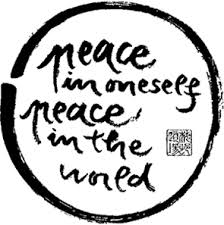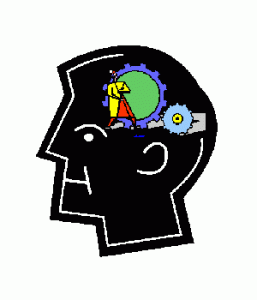 The venerable and much-beloved Thích Nhất Hạnh has written out 14 precepts (think: instructions) for those of us interested in engaged Buddhism. None of them is horrifically difficult, in itself (well, I suppose that depends on what you mean by ‘difficult’…). But taken as a whole? They’re world-shattering.
The venerable and much-beloved Thích Nhất Hạnh has written out 14 precepts (think: instructions) for those of us interested in engaged Buddhism. None of them is horrifically difficult, in itself (well, I suppose that depends on what you mean by ‘difficult’…). But taken as a whole? They’re world-shattering.
Or perhaps I mean world-building? But that’s the challenge: how do you change/ build a world w/out shattering it? How do we move from what is to what might be? That’s where the 14 precepts come in. I thought it might be helpful for others to revisit them, here:
1
Do not be idolatrous about or bound to any doctrine, theory, or ideology, even Buddhist ones. Buddhist systems of thought are guiding means; they are not absolute truth. I love this: a healthy flexibility. When was the last time a religious leader told you NOT to be bound by dictum??
2
Do not think the knowledge you presently possess is changeless, absolute truth. Avoid being narrow minded and bound to present views. Learn and practice nonattachment from views in order to be open to receive others’ viewpoints. Truth is found in life and not merely in conceptual knowledge. Be ready to learn throughout your entire life and to observe reality in yourself and in the world at all times. You had me at life-long learning. What teacher could pass that up?
3
Do not force others, including children, by any means whatsoever, to adopt your views, whether by authority, threat, money, propaganda, or even education. However, through compassionate dialogue, help others renounce fanaticism and narrow-mindedness. I wish I knew how to do this. In every way I can, I try to remember to demonstrate that Buddhism is not, necessarily, a religion, but more a bone-deep/ life-long philosophy. You can be a Buddhist Christian (Thomas Merton), a Buddhist Jew (Norman Fischer), a Buddhist Unitarian… The Buddha never said he was a god, any more than Plato did.
4
Do not avoid suffering or close your eyes before suffering. Do not lose awareness of the existence of suffering in the life of the world. Find ways to be with those who are suffering, including personal contact, visits, images and sounds. By such means, awaken yourself and others to the reality of suffering in the world. This is where I see much of my own path: trying to awaken others to the reality of suffering in our world. It’s everywhere, even as we’d like to pretend it’s not here in America…
5
Do not accumulate wealth while millions are hungry. Do not take as the aim of your life fame, profit, wealth, or sensual pleasure. Live simply and share time, energy, and material resources with those who are in need. I feel guilty all the time about this one, knowing how I love my car, my coffee, my tea… A soft sweater in the fall. Sigh…
6
Do not maintain anger or hatred. Learn to penetrate and transform them when they are still seeds in your consciousness. As soon as they arise, turn your attention to your breath in order to see and understand the nature of your hatred. Tonglen is about all that helps me on this one — waaaay too easy for me to get riled at what some mean-hearted jerk says or does! 🙂
7
Do not lose yourself in dispersion and in your surroundings. Practice mindful breathing to come back to what is happening in the present moment. Be in touch with what is wondrous, refreshing, and healing both inside and around you. Plant seeds of joy, peace, and understanding in yourself in order to facilitate the work of transformation in the depths of your consciousness. Sometimes I almost get this one. Birds on the deck can bring me back. So can rescuing a wasp from the windowsill, or digging in the garden. Writing a poem — even a zombie tanka! — often has the same effect. And holding my grandson? Always ~
8
Do not utter words that can create discord and cause the community to break. Make every effort to reconcile and resolve all conflicts, however small. Believe it or not, I REALLY try to watch my big mouth! 🙂
9
Do not say untruthful things for the sake of personal interest or to impress people. Do not utter words that cause division and hatred. Do not spread news that you do not know to be certain. Do not criticize or condemn things of which you are not sure. Always speak truthfully and constructively. Have the courage to speak out about situations of injustice, even when doing so may threaten your own safety. In every utterance, I try to remember this. What is needed? What is helpful? What is kind? These are critical. And of course: what is wrong and needs righting?
10
Do not use the Buddhist community for personal gain or profit, or transform your community into a political party. A religious community, however, should take a clear stand against oppression and injustice and should strive to change the situation without engaging in partisan conflicts. I don’t believe that engaged Buddhism need have a political affiliation, but I do find that today’s conservatives too often place profit above people. And that saddens me beyond politesse. Still, I try to remember to meet people in their good intentions.
11
Do not live with a vocation that is harmful to humans and nature. Do not invest in companies that deprive others of their chance to live. Select a vocation that helps realise your ideal of compassion. There is no job I would take that harms others. I left the one job I had that was rude to people, many years ago. Compassion is all we have…
 12
12
Do not kill. Do not let others kill. Find whatever means possible to protect life and prevent war. Seems clear enough Well, until you get in to vegetarianism…Sigh. Still struggling w/ that one.
13
Possess nothing that should belong to others. Respect the property of others, but prevent others from profiting from human suffering or the suffering of other species on Earth. Here we get into one of the many forms of engagement I find critical: conservation and environmental activism. Without a planet — without bees and birds and the ocean and clean air — we have nothing. I take this one pretty seriously. And I wish more of us did…
14
Do not mistreat your body. Learn to handle it with respect. Do not look on your body as only an instrument. Preserve vital energies (sexual, breath, spirit) for the realisation of the Way. (For brothers and sisters who are not monks and nuns:) Sexual expression should not take place without love and commitment. In sexual relations, be aware of future suffering that may be caused. To preserve the happiness of others, respect the rights and commitments of others. Be fully aware of the responsibility of bringing new lives into the world. Meditate on the world into which you are bringing new beings. Another hard one. Far too often, we forget to put our own oxygen masks on first. We give & give & give until we are empty. Burn-out is the term we use, but empty works for me.
Each of us is a piece of the puzzle that is our messy, flawed, fragmented & infinitely beautiful world. If we put into practice only a few of these daily, how might that heal our broken places? Worth a thought, isn’t it?

